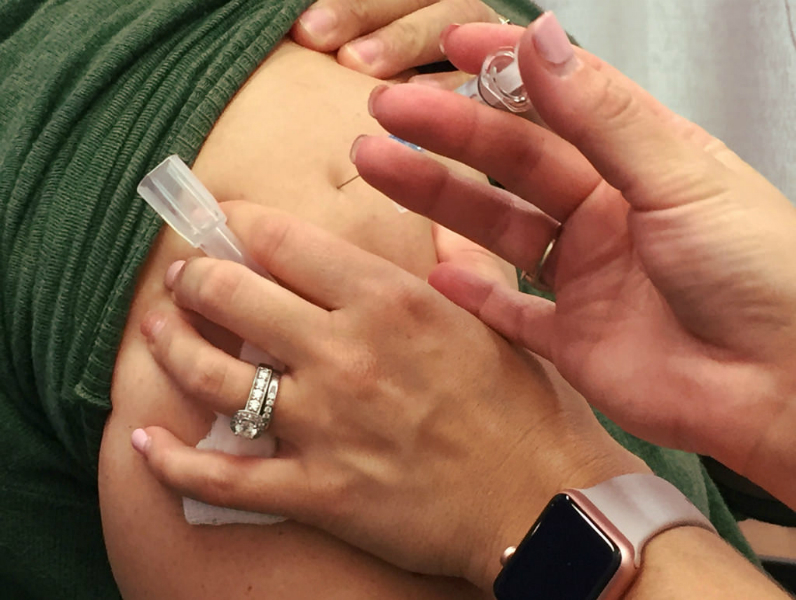It’s that time of year again: autumn leaves, cool nights, football games on TV and flu shots in the news. Over and over again, I am asked: “Why bother? These shots don’t prevent all instances of influenza, do they? Why should I take the shot when I think it doesn’t work and maybe will make me sick?”
Well, let’s review the issues. It is true that the influenza vaccine does not prevent people from getting the flu entirely. But it does reduce your risk of serious disease, complications from influenza and overall illness. By taking the flu shot, you are significantly less likely to end up in the hospital, or to die of the flu or its trusted companion, pneumonia. And that is what this is all about.
In medicine, we talk about morbidity and mortality: how sick you get and whether or not you die from the disease. Immunization reduces morbidity and mortality. It does not eliminate every episode of flu. But that’s OK. We can tolerate being home for a few days, aching and a low-grade fever. We cannot easily tolerate having diminished lung functions and being on a respirator while dealing with the disease.
READ: FIGHTING COLDS AND FLUS THE NATURAL WAY
Most provinces in Canada offer flu shots to all. But the very young and the very old are especially at risk. Children under six months of age cannot have a flu shot, yet they are at risk. So everyone – moms, dads, nannies, nurses, family and friends – need to protect that infant and get themselves immunized. Likewise, all children under the age of five are at increased risk. Get them immunized. Pregnant women, aboriginal people and those with chronic illnesses, such as diabetes or heart disease, are also at increased risk.
Pregnant women should also be immunized, as they, and their babies, are at a higher than normal risk. And all people over the age of 65, statistically speaking, are at higher risk than younger people. Not only are they more likely to get the flu, they are more likely to be hospitalized and more likely to die of influenza than younger people. So, by being immunized, you are protecting yourself, your family and your
community.
People battling other diseases, such as cancer, also need to be immunized, so they can continue their treatments, and people around them need to be immunized, to protect the cancer patient from influenza.
Health-care workers, doctors, nurses, paramedics, first responders and those taking care of people in nursing homes and hospitals are more likely to expose those who are vulnerable. And that is just not right. Those of us who care for sick patients, in or out of hospital, should be clear and well informed, not merely well intentioned. Health-care workers need to be immunized, so they pose less of a risk to the population and set an example for the larger community.
We need to be clear in our thinking, clear in our motivation, clear in our actions and follow Canadian and World Health Organization guidelines. Go get the flu shot from your doctor, your pharmacist, your public health nurse, your clinic, your primary care provider. We all are on the same team, so let’s step up to the plate.
